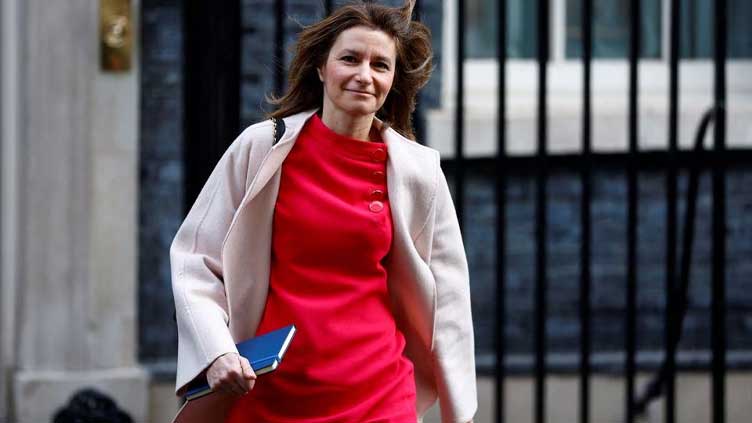Britain and France query state funding of Russian and Belarusian athletes

Sports
Several Olympic sports federations have taken steps to readmit Russians and Belarusians as neutrals
LONDON (Reuters) - Britain and France's sports ministers insisted on Tuesday that Russian and Belarusian athletes must never compete as neutrals as recommended by the International Olympic Committee (IOC) because they could still be funded by their governments.
The IOC sanctioned Russia and Belarus after Moscow invaded Ukraine in February 2022 with Minsk's support, but last month recommended that their athletes be allowed to return to international competition as neutrals.
Several Olympic sports federations have taken steps to readmit Russians and Belarusians as neutrals, but Ukraine is threatening to lead a boycott of the Paris 2024 Games unless Moscow withdraws its soldiers.
Britain's minister for culture, media and sport Lucy Frazer told a Council of Europe parliamentary hearing that the IOC recommendations' absence of reference to state funding was worrying.
"Secondly, the provisions set out on military and national security agency links are currently minimal... We know that the links between state, military and sport in Russia and Belarus are root and branch," she added at the meeting in Strasbourg. "Many Russian athletes have been active in their support for Putin's invasion."
The IOC recommendations say Russian or Belarusians contracted to their military cannot compete. French sports minister Amelie Oudea-Castera said the IOC had "very tangible and basic issues" to clear up before the Olympics start in July next year.
"What is the position the IOC intends to take when it comes to athletes who are funded and financed by the Russian or Belarusian state?" Oudea-Castera asked. "Or those who are sponsored or benefiting from financial support from entities having links with Russia or Belarus?"
SPORT NOT AN 'INSTRUMENT FOR PUNISHMENT'
The IOC is to finalise decisions on the participation of Russian and Belarusian athletes at a later date. Representing the Olympic body at Tuesday's meeting, former Armenian wrestler Arsen Julfalakyan, chair of United World Wrestling's athletes' commission, said he opposed a ban.
Julfalakyan said he had never advocated for banning Azerbaijan athletes despite the Nagorno-Karabakh conflict between both countries which has killed thousands.
"I realised what war means and what it looks like. I lost friends, relatives and people I knew closely ... I've never called for a total ban on Azerbaijan athletes and I won't do that here either," said the Olympic medallist.
"Sport should never be politicised. It's not acceptable to use sport as an instrument for punishment. It's not up to governments to decide - that will end international sport." As well as threatening a boycott, Ukraine has also barred its national teams from competing in events which include Russian and Belarusian competitors.
"The government will not financially support the participation of Ukrainian teams in such competitions," deputy sports minister Andriy Chesnokov told the meeting. Russia has condemned the West for what it says is an unjustified attempt to politicise sport for geopolitical gain.

